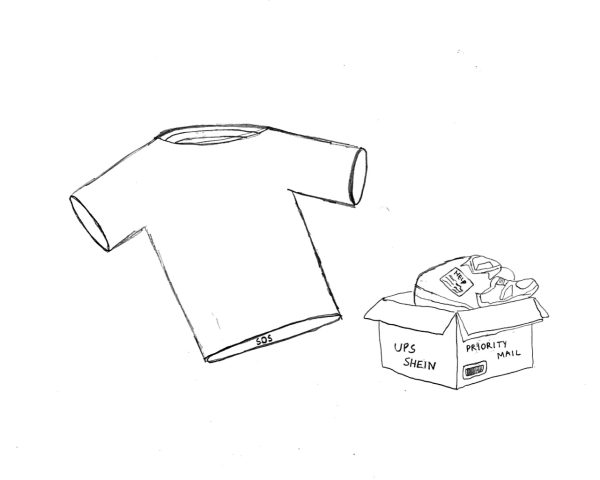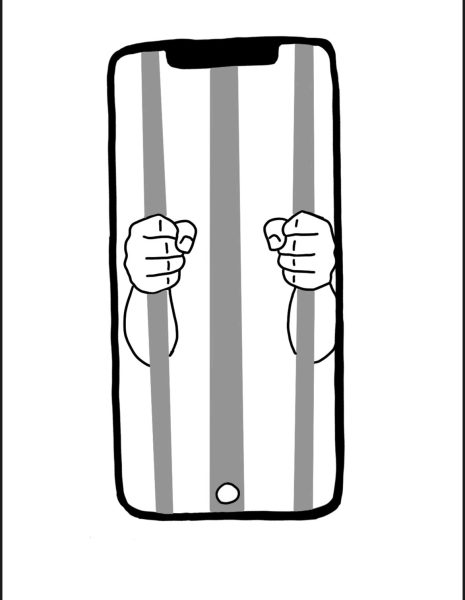Thought facing your fears was the hardest thing, try meeting parental expectations
April 29, 2021
“I want you to get at least 1500 on the SAT,” my father told me two nights ago as he made dinner. Sitting there watching him sear the potatoes, I felt terrified, but not surprised. My parents have always had high expectations for me, which is why his statement was not shocking. Even so, I fear not reaching that goal and letting my parents down. As a sophomore in high school, students are occupied with math tests, piles of homework and sports events, which does not give them much time to think about testing for colleges. Living in Marin County, parents provide their children with many opportunities, however, those opportunities come with high hopes. This expectation of excellence in academics has only increased as classes have become more challenging.
Expectations used to be something that I would meet and thus feel good about myself. Now I, as well as many other teenagers, view them as a door to disappointment rather than an opportunity to become successful. The idea of rising parental expectations is correlated with the decrease in college acceptance rates and how each year colleges become more difficult to get accepted into. Parental expectations increase as these acceptance rates fall. According to Inside Higher Ed, in 2020 there was an 11 percent drop in college acceptances in public four-year institutions and a five percent drop in private four-year institutions from 2019. Furthermore, according to a Cub Bark survey, 88.2 percent of Redwood students’ parents expect them to attend college, which illustrates the significant pressure put on high school students. Jill Steinberg, parent of Redwood High School sophomore, Dani Steinberg, expects her children to attend college and offers insight from a parental perspective.
“The intercorrelation is that the more competitive student’s universities are, the harder the parents are on kids,” Steinberg said.
Expectations can be mentally draining as students become stressed and pressured to meet unrealistically high standards. Revealed in the same Cub Bark survey, only 13.8 percent of Redwood students do not feel stressed by expectations placed on them by their peers or parents.
Spencer DeWoody, one of Redwood’s therapists, is aware of the high expectations inflicted on students and the strain it puts on teenagers.
“At the expense of students’ mental health, [students] will try to push themselves, and push themselves, [becoming] like a hamster. They run circles and circles and never stop as far as academics go. But when it comes down to self-care and taking care of themselves, that I see less. This can be overwhelming, it can cause anxiety, stress, and depression,” DeWoody said.
Once parents set expectations for their kids, students begin to form higher expectations as well. Expectations are like climbing out of a deep ditch. With each step someone takes to get out, they can not stop to take a breath because they risk falling further down. However, if they slip, they will fall deeper into the ditch and create more work for themselves. “Slipping” can mean taking breaks or celebrating their achievements, which students do not have time for because they risk falling behind. Throughout their high school career, the ditch will continue to grow, becoming deeper, as students and their peers create more standards for them to reach.
Louis Colombo, a junior at Redwood, struggles with this problem. His parents attended UCLA and Stanford, creating high expectations for Colombo and pressure to meet their standards. According to Colombo, the COVID-19 outbreak has not reduced parental expectations.
“Due to the extra time [at home] that coronavirus has given me, I feel that my parents want me to do more extracurriculars and since I have more time to study, they think that I should be doing more,” Colombo said.
Although some parents and adult figures believe they have their child’s best interest at heart and that pushing them will ultimately make them successful, this is not the case. Increased expectations create increased stress and more to worry about, as DeWoody said, this can result in mental illnesses that will impact students negatively.
Increased expectations are a recurring problem in the lives of many students, but parents still have not reduced, or even realized, the challenges they put on their children. Pushing expectations on kids is motivational up to a certain point until they become overwhelming. Although parents should lower their intentions for their children, students also need to learn when to stop pushing themselves so hard and learn to take pride in their achievements.
My parents have set very high expectations for me but they also know that I always put my best effort into my work. They will be proud of me even if I do not receive a score of 1500 on the SAT, as they now understand the mental stress of constantly putting expectations on teenagers like myself. They realize that a little push can be inspiring, but also know that pressure can quickly build up, digging a large hole that we, students, find ourselves buried in. Little by little, we can climb our way out by encouraging ourselves and being content with all of our accomplishments. The only solution to this widespread problem is recognizing what is placed on you and reaching out to your parents to talk about the repercussions of their actions. Expectations will continue to rise as colleges become more competitive and futures become more unpredictable, but all students can do is make connections with their parents which will reduce stress levels and allow them to enjoy their teenage years.






















